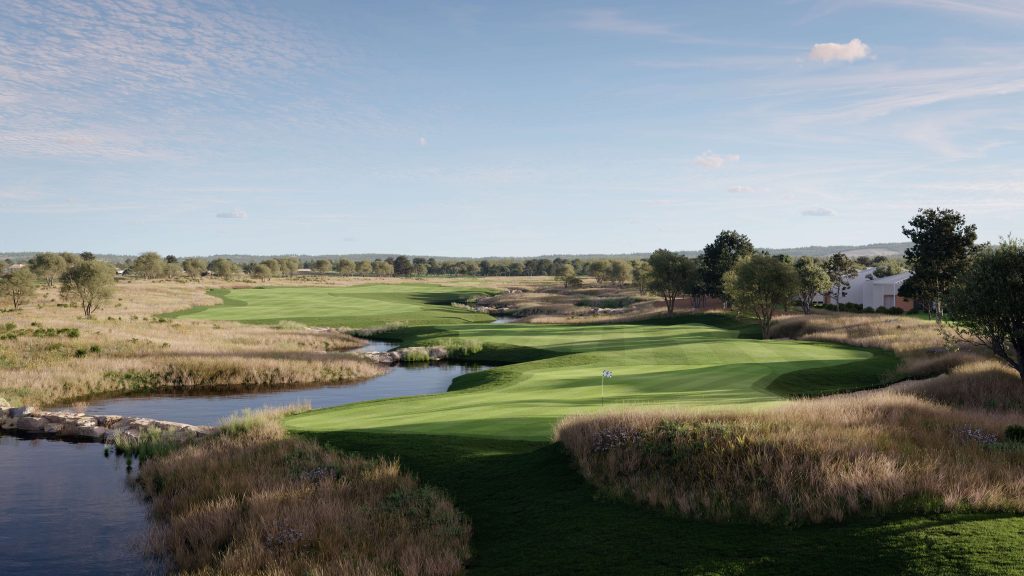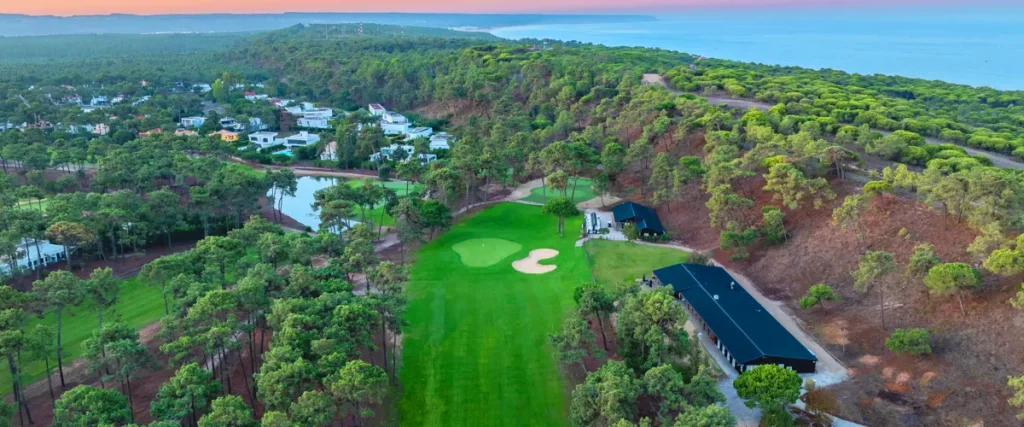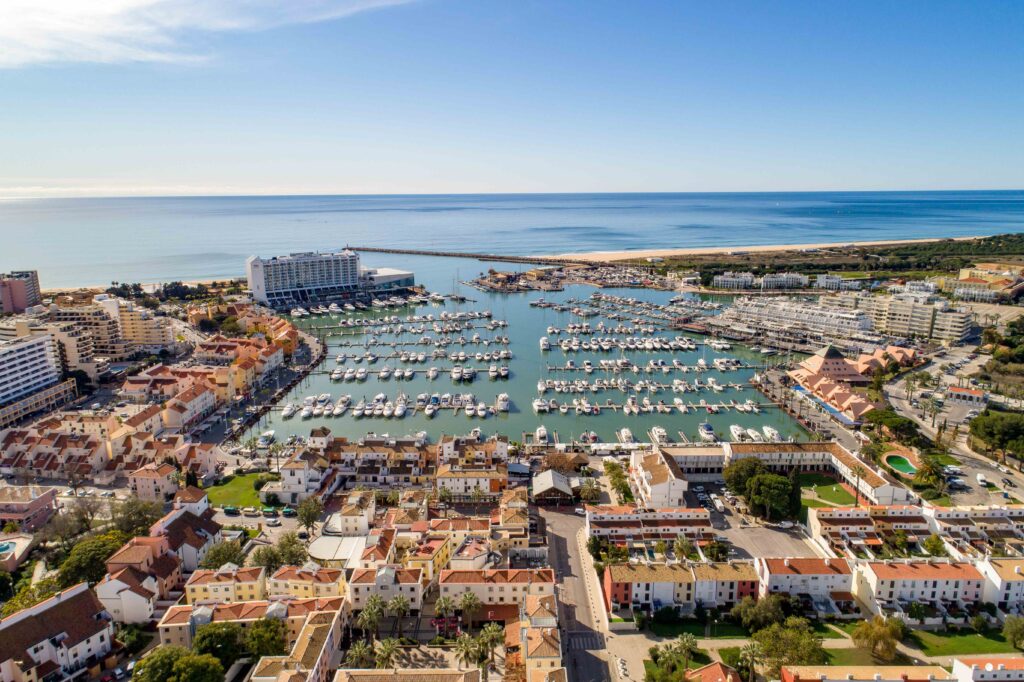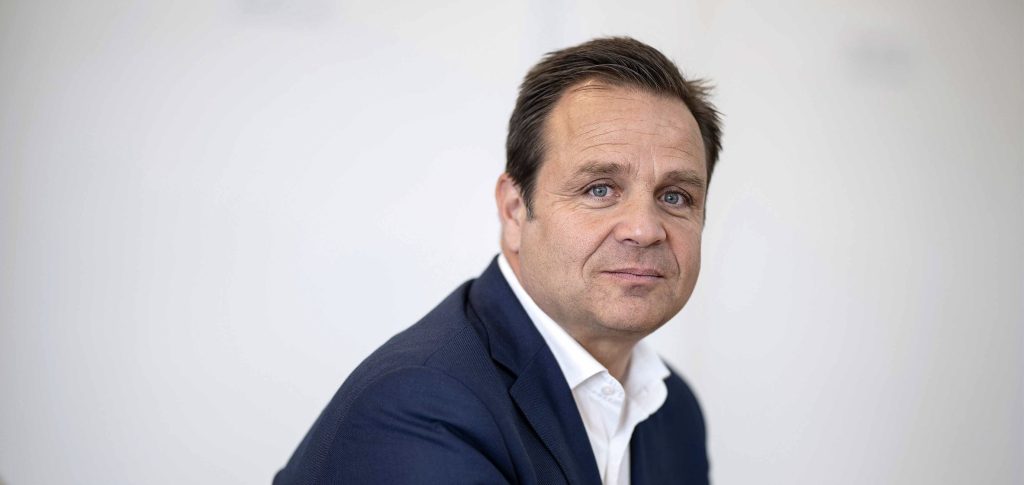In this exclusive interview with GBN, Nuno Sepulveda, co-CEO of Details – the hospitality, sports, and leisure arm of Arrow Global – shares his journey from agronomic engineering to leading one of the most ambitious golf and resort portfolios in Europe. With insights into sustainability, innovation, and the evolving nature of golf tourism, Nuno reflects on lessons learned, challenges overcome, and what the future holds for Portugal’s golf scene and beyond.
GBN: What was your educational and training route that led you to a career in the golf industry?
Nuno: I started out as agronomic engineer, but I decided to study landscape architecture overseas in the UK despite not speaking any English. Three months in, I realised I was on the wrong course – it was actually a turf science and golf management course! But I was persuaded to stay on the course. That mix-up is the reason I still work in golf to this day. Since then, I’ve held various roles in the industry, ranging from actually building the courses to agronomy and then eventually management and hospitality.
After various senior roles at golf clubs and resorts in Portugal you moved to Costa Navarino in Greece in 2017. What attracted you to the position, what were your biggest challenges and what are you most proud of in terms of what you achieved in the six years you spent there?
At the time, Costa Navarino was unknown to me – and to most of the golfing world. The offer was a surprise, but when I went to see the place, I knew it was too good an opportunity to pass up. I couldn’t believe somewhere like that existed in Europe. Also, my family wanted to experience living abroad for a few years – the other offer I had at the time was in Georgia, but I never went to see it.
Although Costa Navarino was an amazing product at the time and is even better now, the biggest challenge was taking a destination in Greece – a country most people didn’t associate with golf at all – and put it on the golfing map. But people were raving about it; reviews were extremely positive and we did very well in rankings and awards.
My family and I loved the six years we spent there – at the time, we were so happy that I had no plans to leave any time soon.
How did you hear about your current role as co-CEO at Details and what appealed to you to take up the job?
I didn’t know there was a job opened by that time, I was contacted by Arrow – they knew I was at Costa Navarino and approached as they would like to bring in someone to the project with international experience, but ideally someone from Portugal so that they would have the best of both worlds. They wanted someone that understands how things are done in Portugal as well as having knowledge of international brands and clientele, different price points and luxury products.
The chance to return to Portugal was a bonus, but my main reason for the move was because I believed in the project. It’s a huge, ambitious project with several incredible venues and so much potential. There’s a really interesting vision behind it.
For those that don’t know, could you provide an overview of Details and its role in the hospitality, sports and leisure industry?
Details is responsible for managing Arrow Global’s properties in those three sectors across Portugal. At the moment we oversee an 19 hotels, nine golf courses and an equestrian centre, and there are plans for significant growth in not only Portugal but also other parts of southern Europe in the near future.
What really sets Details apart is the way we look at the three pillars of hospitality, sports and leisure – not as separate elements, but as an overall experience. We believe by connecting these areas, we can add value whilst making our operations more efficient and sustainable. Our focus is always on enhancing the guest experience.

You’re coming up to two years in the job now. What were the main challenges that you faced when you first arrived and how has the business developed in that time?
One of the biggest challenges at the start was showing the teams on the ground that we weren’t just bringing promises – we were here to actually make things happen.
Some of the venues showed clear signs of the effects of time, not just in terms of the physical spaces, but also in terms of people feeling overlooked or unsupported. Our job has been to turn that around – giving teams the tools, training and motivation they need to realise they’re working in truly special places. With the right systems and the right mindset, everything becomes possible.
Since I joined, we’ve launched the rebranding of Vilamoura Golf courses and PGA Aroeira, the renovation of PGA Aroeira No.1 (formerly known as Aroeira Pines Classic), upgraded both the clubhouse and the Old Course in Vilamoura, announce the Els Club Vilamoura, the first private club in the Algarve and the first Ernie Els Club in Europe and we were proud to see Palmares win the award for Europe’s Best Clubhouse at the World Golf Awards. We’re also in the process of refurbishing the equestrian centre, and there’s a lot more coming – like the Dom Pedro Vilamoura hotel, which will reopen under the Hyatt Regency brand in 2026.
All of this – rebranding, renovations and implementing proper procedures – has been at the core of what we’ve achieved so far. These have really been our biggest wins since stepping in.

What expectations should a golfer have when they visit one of your properties? What are the hallmarks of Details’ service and hospitality?
The main goal is to give every golfer a balanced mix of challenge, enjoyment and a great overall experience, from the moment they book to the moment they board the plane home. That feeling of having had a really good time, knowing someone was looking after them throughout, is the best feedback we can receive.
We’re working hard to reach a consistently high standard across the board. To do that, we’ve teamed up with key partners like Toro, John Deere, 59club, Golfmanager, How Many Strokes and many others, to make sure we’re aligned with the best in the golf industry. It’s all about quality – whether it’s the food we serve, the machinery we use to maintain our courses or the way our teams interact with every guest.
That’s the path we’re on. So when a golfer visits one of our properties, they can expect great golf, great service and a great time – leaving with good memories and a genuine feeling that they want to come back.
With your background in agronomy, you must be keenly aware of the environmental impact that large scale resort development has on local ecosystems. How do you offset or mitigate against the negative impact that golf development has in terms of water usage and carbon output with the economic benefits of bringing more golfers and tourism to a region?
Golf courses need water – there’s no denying that. But what I often say is that golf courses actually manage water better than almost any other industry, and they’ve been doing it for many, many years. Irrigation is done to the millimetre, not by the hour or the day. Over the last few years, there’s been a huge push to prepare our courses to connect with water treatment plants – managed by the Portuguese government – so that we can reuse wastewater instead of letting it flow into the ocean.
We’ve already adapted our operations and invested in the infrastructure needed to use this kind of water. The issue is that the water needs to be made available. Golf is ready – we’re just waiting for the system to catch up.
Golf has made major progress in water management, but the sport has still done a poor job at sharing those stories with the world outside of golf. Even small things – like painting grass green to avoid watering – can be seen as a sustainable measure, but it’s not communicated effectively. We’ve been making huge improvements in this area, we just haven’t told people about it.
At Details, we take sustainability seriously within the assets we manage. The Vilamoura golf courses are both GEO and Biosphere certified, and PGA Aroeira holds the Portuguese ‘Sustainability Committed’ seal. These certifications are the result of real, on-the-ground actions: choosing turf varieties that are better adapted to the local climate, reducing the need for irrigation; replacing grass in non-playable areas with wood chips made from shredded tree maintenance materials; installing new pump stations (in case of Aroeira and Old Course) with advanced technology, which expected to reduce energy consumption by 25 per cent; and many other measures that will contribute to reduce our footprint.
We’re committed to running Details with a strong ESG mindset – one that’s community-focused but also deeply aware of our environmental footprint. More and more, golfers understand that the game goes beyond the fairways, and we want to make sure we’re contributing to that more responsible vision of what golf can be. We believe golf should be part of the solution, not the problem.
What future plans does Details have in terms of further growth in the golf sector?
The big vision for the future of Details is clear – we want to become the largest golf asset management company in Portugal and one of the top three in Europe. It’s all about consistently pushing the boundaries. We’re not just managing golf courses, we’re dedicated to constantly improving them, ensuring that every single player experiences the highest quality.
But it’s about more than just golf courses. We see golf as a powerful driver for growing destinations. Alongside hospitality, real estate opportunities, and cultural offerings, golf will become a major pillar in the value of these places. Our mission is to keep delivering the best returns for our investors who trust in the potential of these assets.
There is a growing trend towards people taking more activity-based holidays, not just in golf, but across the board. How important is it for Details venues to be seen as family-friendly destinations that cater for other interests beyond golf?
It’s really important – and honestly, it’s already part of how we operate. Details was never just about golf, and that gives us the flexibility and the know-how to design destinations that speak to different types of travellers – families, groups of friends, solo travellers, you name it. Golf is a key ingredient, of course, but so are the gastronomic experiences, the quality of our hospitality, the access to nature, wellness spaces, sports academies, and cultural programming. At the end of the day, it’s about building spaces that people want to return to, even people who don’t play golf.

What other trends, whether they be social, climatic or economic, do you think will have an impact on golf tourism over the next 5 to 10 years?
There are a few big ones we’re already paying attention to, including sustainability, as we have already talked about. Then there’s the whole wellness side of things. More and more, golf is becoming a kind of escape – not just physically, but mentally too. People are looking for balance, and golf fits perfectly into that more holistic lifestyle. It’s a sport, yes, but also a way to recharge.
Off the course, experiences matter more than ever. Great food, cultural vibes, easy transport – travellers want it all. A destination that’s only about golf won’t cut it anymore. It has to be a full experience from the moment you arrive.
And one more thing we think will really shape the future: the link between golf and the community. Charity tournaments, purpose-driven events, using the sport to raise awareness – these are all powerful ways to make golf more meaningful. If someone loves the game and sees a chance to support a cause at the same time, they’re in. That emotional connection matters.
Last year, for example, we hosted the Olazábal & Friends Charity Tournament, which raised funds for Save the Children. It was a great reminder of how the game can bring people together for a bigger purpose. These kinds of actions aren’t just nice to have – they’re necessary. They bring people together and prove that golf has the power to make a real difference.
Have you had any mentors during your career, or people who you have been able to lean on for advice? If so, who are they and what have you learned from them?
I’ve had the pleasure of working with many talented and capable people over the years, and there are several individuals who stand out as key references along the way. One of them is Eduardo Johnston da Silva, who played a crucial role in helping me transition from greenkeeping to golf course management and later into the commercial side of the business.
Another major influence has been the owner of Costa Navarino, whose vision for quality and high standards was truly inspiring and motivating.
And of course, more recently, I’ve had the opportunity to work closely with many brilliant people at both Arrow and Details. John Calvão, in particular, has been a real inspiration – someone who values his roots and is genuinely committed to contributing to Portugal’s growth. He has a big-picture vision, coupled with a strong drive to make things happen — to do it well, and to do it quickly.
It’s been an incredibly positive and dynamic journey, and I’m genuinely grateful to have crossed paths with people who have truly helped shape and drive golf tourism in Portugal to where it is today.
What do you know now that you wish you’d had known when you first started out in your career?
Getting things done fast is great — but doing them properly is even more important. Sometimes we just need to be patient (easier said than done… especially for someone like me who’s always on the move!).
When you’re starting out, you’re so eager to prove yourself and make things happen that you forget things take time. People have different rhythms, products evolve at their own pace, and some things just can’t be rushed.
But here’s the thing — while you’re giving things time to grow, don’t forget to celebrate the little wins along the way. They’re what keep you going. They remind you that you’re on the right path, even if things aren’t happening as quickly as you’d like. It’s all about keeping the fire going, even when things take time.



